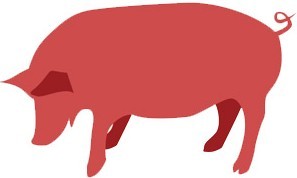For my son, I believe it was the combination of high soy intake, coupled with a strong antibiotic I took early in the pregnancy. We were able to recover over a period of years by eliminating all gluten, soy, eggs , and limiting dairy to only raw, cultured dairy. We made lots of broth-based soup because it was cheap; now I understand how healing it is! Had I had the information then that we now have via Weston A. Price Foundation and the internet, it would have happened much sooner!

Raw milk should last at least a week in the fridge and 2 weeks if really fresh and chilled properly. Formula will last several weeks in the freezer. I avoid fish oils and prefer instead to use parent oils due to becoming aware of the research done by Brian Peskin.
- When my dd woke up, all I had to do was put it in a bottle and feed it to her.
- For take-off and landings I usually nursed him, or he drank from a sippy of water or used his pacifier.
- Arrange for child care if possible while you’re away.
- I had some of the little snow ball souveniers in my carry bag and didn’t think anything of it.
- I’m assuming organic virgin coconut oil, but would fractionated coconut oil work?
- All you need right now is a few handy tips on how to pack formula for air travel, especially when traveling with your newly born for the first time.
I am blending it in my Ninja blender for 5minutes on the highest setting but I’m having an issue with the particals creating a “sludge” and clogging up the nipple hole caravan sites on harris and lewis . I’m constantly ripping the bottle from her mouth to clear the hole so she can eat !! I’m starting to strain the liquid so it can pass through the bottle nipple but I know I’m straining out the prescious nutrients. Since five days, I give my eight months old son the liverbased formula and raw cheese. Now, he has suddenly defeloped and extremely dry scaly skin, on his cheeks and on the back of his knee.
Timeline
So now I just give my baby warm bottles at night, the rest of the time I just use room temperature bottled water…it makes it so easy and convenient. Also there are so many kind of bottle out there these days, I find that the old school Playtex with the drop-ins are the best. Busy moms don’t have time to be cleaning bottles, the drop-ins are fast and easy. The generic brands of drop-ins are really cheap and they actually work better too.
Raw Milk Baby Formula
For many new parents, the excitement of starting their family and traveling miles from home is something they look forward to. In this article, we’ll share advice on how to make sure you’re prepared for your trip with baby formula! Traveling is a wonderful experience, but if you’re traveling with a baby, it might be a little difficult. Here’s how to avoid any problems during your trip.
The safest way to transport formula is to take cooled, boiled water and the powdered formula in separate containers. Before feeding your baby, test the temperature of the formula by placing a few drops on the inside of your wrist. Make sure the formula isn’t too hot – it should feel just warm. Next, boil fresh tap water in an electric kettle or on the stove top.
They are usually well-established into a sleeping and eating routine (that will not be blown away permanently by a few disruptions due to travel. Promise!). Although we have never had an issue, we have read stories of moms having to dump out breastmilk before their flight. Milk Stork is a company dedicated exclusively to shipping breast milk. They send containers that you can fill and ship overnight. My insulated bag used to bring breastmilk through TSA. The liquids rule can be misleading because not all the items that follow this rule are technically liquids.
Pick The Right Flight
Any family traveling with a baby will inevitably face the challenge of transporting breastmilk or formula during a trip. Even if you exclusively breastfeed, a stash of milk, whether expressed breastmilk or formula, is one of the most essential travel items for babies. Traveling, particularly by plane, can be very dehydrating. And you don’t want to be empty handed or helpless if you experience an unexpected dip in your supply or your baby needs to nurse more than usual. This is why it’s important to always travel with breastmilk or emergency formula during the baby stage.



